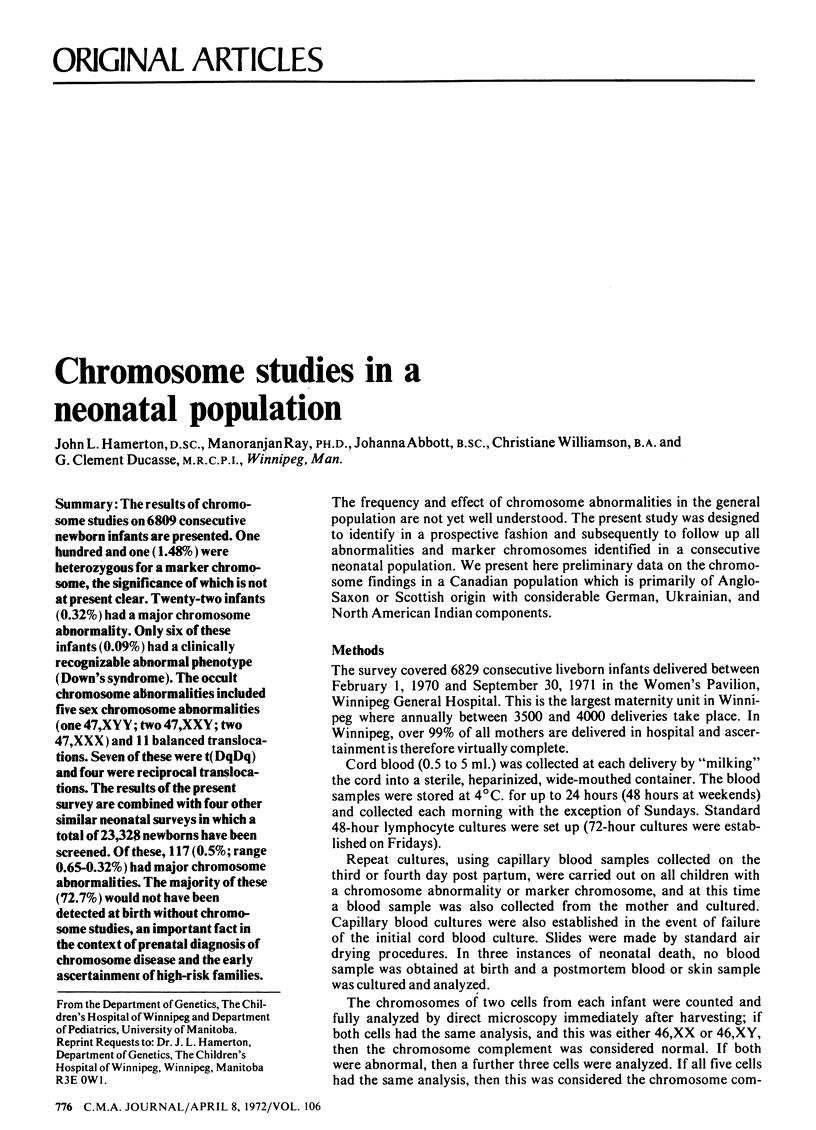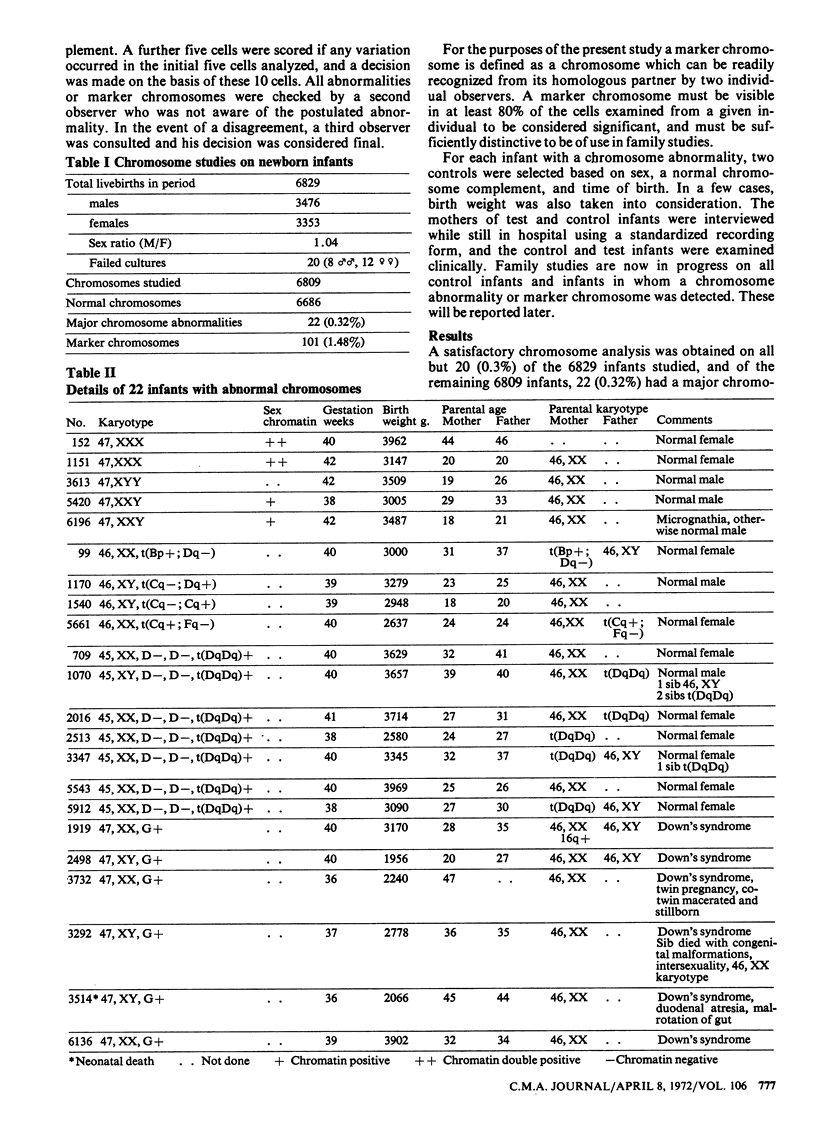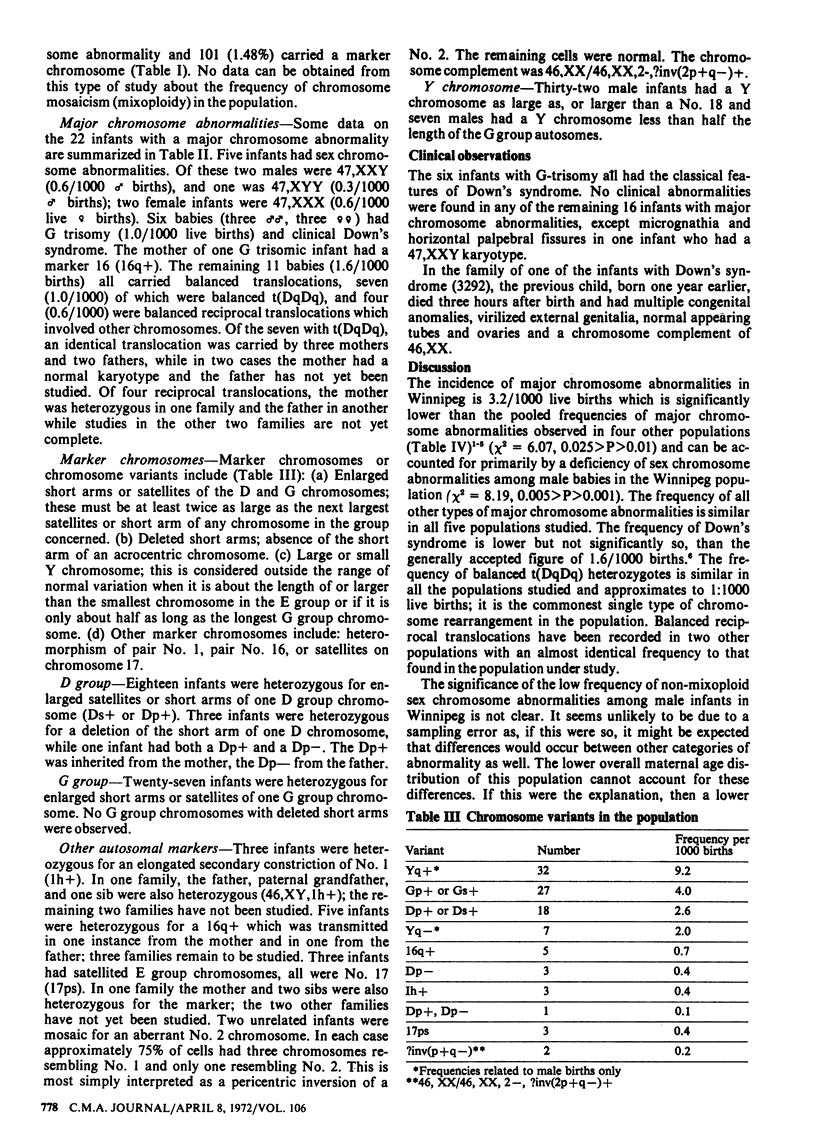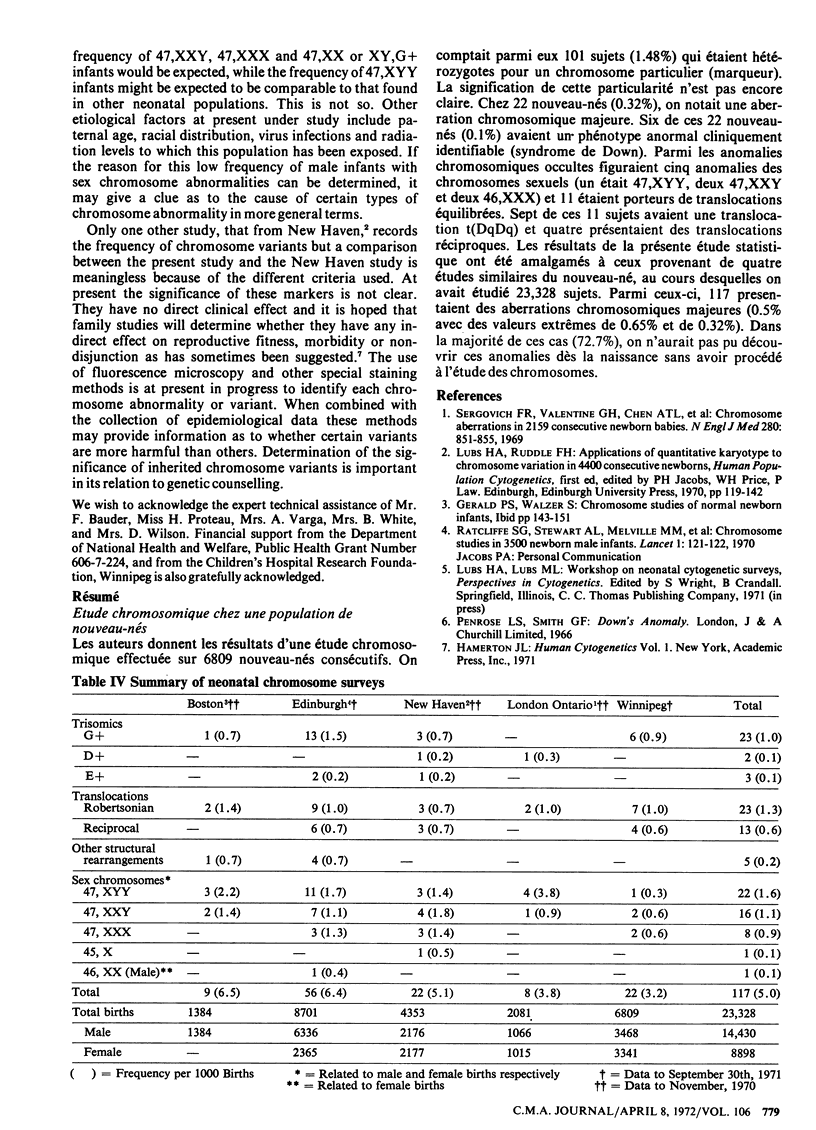Abstract
The results of chromosome studies on 6809 consecutive newborn infants are presented. One hundred and one (1.48%) were heterozygous for a marker chromosome, the significance of which is not at present clear. Twenty-two infants (0.32%) had a major chromosome abnormality. Only six of these infants (0.09%) had a clinically recognizable abnormal phenotype (Down's syndrome). The occult chromosome abnormalities included five sex chromosome abnormalities (one 47,XYY; two 47,XXY; two 47,XXX) and 11 balanced translocations. Seven of these were t(DqDq) and four were reciprocal translocations. The results of the present survey are combined with four other similar neonatal surveys in which a total of 23,328 newborns have been screened. Of these, 117 (0.5%; range 0.65-0.32%) had major chromosome abnormalities. The majority of these (72.7%) would not have been detected at birth without chromosome studies, an important fact in the context of prenatal diagnosis of chromosome disease and the early ascertainment of high-risk families.
Full text
PDF



Selected References
These references are in PubMed. This may not be the complete list of references from this article.
- Ratcliffe S. G., Stewart A. L., Melville M. M., Jacobs P. A., Keay A. J. Chromosome studies on 3500 newborn male infants. Lancet. 1970 Jan 17;1(7638):121–122. doi: 10.1016/s0140-6736(70)90469-1. [DOI] [PubMed] [Google Scholar]
- Sergovich F., Valentine G. H., Chen A. T., Kinch R. A., Smout M. S. Chromosome aberrations in 2159 consecutive newborn babies. N Engl J Med. 1969 Apr 17;280(16):851–855. doi: 10.1056/NEJM196904172801602. [DOI] [PubMed] [Google Scholar]


